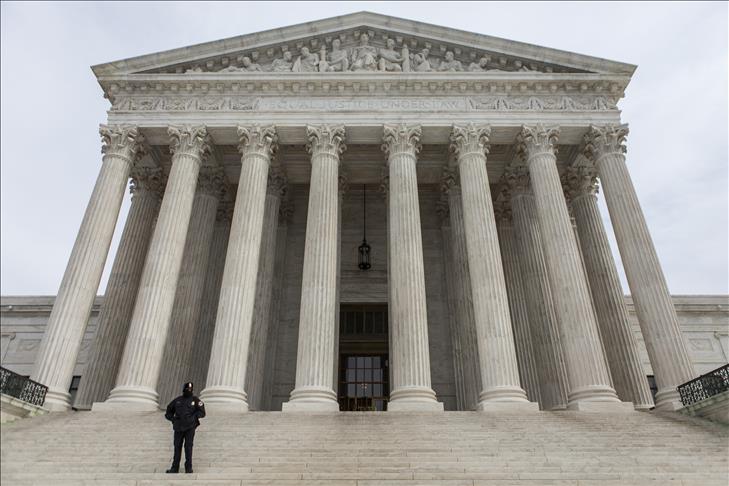
By Michael Hernandez and Erkan Avci
WASHINGTON
The Supreme Court ruled Monday in favor of a Muslim woman who was not hired by a fashion retailer because she wore a headscarf during a job interview.
In the 8-1 vote, the justices found that Abercrombie & Fitch failed to accommodate Samantha Elauf’s religious needs when they declined to hire her in 2008 for a position at an Abercrombie Kids store in Tulsa, Oklahoma.
"Observance of my faith should not have prevented me from getting a job. I am glad that I stood up for my rights, and happy that the EEOC was there for me and took my complaint to the courts,” Elauf said in a statement provided by the Equal Employment Opportunity Commission (EEOC) which filed suit on her behalf. “I am grateful to the Supreme Court for today's decision.”
While Elauf earned high marks during the hiring process, her score was downgraded because she wore a headscarf during the interview.
The fashion retailer’s “Look Policy” prohibits black clothing, facial hair, highlighted hair, dangly earrings, and at the time of her interview it also banned the wearing of caps, including headscarves. That has since changed.
Discriminating against an applicant based on religion is illegal under federal law, unless the employer can prove that accommodating the applicant would impose an undue hardship.
The company argued that it couldn’t have known that it needed to make an exemption to its employee dress code because Elauf didn’t identify herself as a Muslim.
The court found that Abercrombie & Fitch “knew—or at least suspected—that the scarf was worn for religious reasons.
“There is sufficient evidence in the summary judgment record to support a finding that Abercrombie’s decisionmakers knew that Elauf was a Muslim and that she wore the headscarf for a religious reason,” Justice Antonin Scalia wrote in the majority opinion.
Clarence Thomas, the only black justice on the court, was the sole dissenting vote.
While a victory for Elauf, the court's decision does not entirely resolve the case. It will return to a Denver district court that had previously ruled against her for consideration consistent with Monday's ruling.
An Abercrombie & Fitch spokesperson said the company is considering its "next steps" in the case.
"While the Supreme Court reversed the Tenth Circuit decision, it did not determine that A&F discriminated against Ms. Elauf. We will determine our next steps in the litigation," the spokesperson said in a statement.
Adam Soltani, who worked with Elauf to open her initial case in 2008, said that the Supreme Court's ruling is a "great victory."
“I think it is a great victory for religious pluralism in our country because it will pertain to all religious headwear, not just headscarfs for Muslim women,” Soltani, who serves as the executive director of the Council on American-Islamic Relation's Oklahoma chapter, told Anadolu Agency. “Unfortunately we live in a day and age where Muslims living throughout the country face a lot of challenges in regards to Islamophobia and fear and misunderstanding about the faith,” he added.
Anadolu Agency website contains only a portion of the news stories offered to subscribers in the AA News Broadcasting System (HAS), and in summarized form. Please contact us for subscription options.

